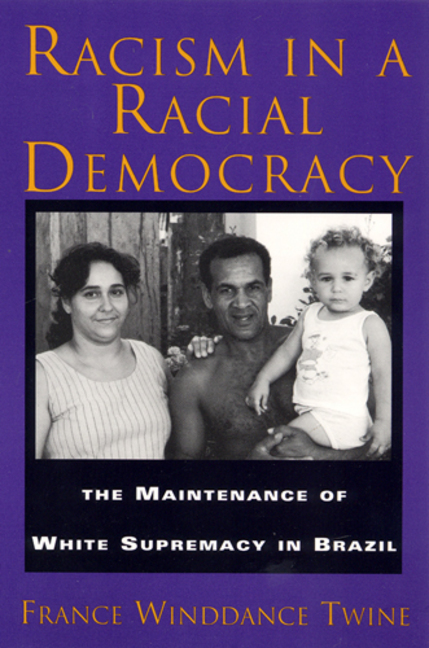France Winddance Twine | Digging Up the Past: Race & Class in BrazilPosted in Brazil, Caribbean/Latin America, History, Media Archive, Social Science, Videos on 2019-02-26 19:59Z by Steven |
France Winddance Twine | Digging Up the Past: Race & Class in Brazil
Duke Franklin Humanities Institute
Duke University, Durham, North Carolina
2019-02-11
The From Slavery to Freedom Lab welcomed France Winddance Twine on the occasion of the 20th anniversary of the publication of her book, “Racism in a Racial Democracy: The Maintenance of White Supremacy in Brazil.” Dr. Twine reflected on intersectionality and racial, gender, and class politics in Brazil and the future of Brazilian Studies.
France Winddance Twine is Professor of Sociology at the University of California, Santa Barbara. She is an ethnographer, a feminist race theorist, and a documentary filmmaker, whose research focuses on multiple dimensions of inequality. Twine’s research provides case studies for a nuanced analysis of the intersections of race, class, sexuality and gender inequality. Twine has conducted extensive field research on both sides of the Atlantic including: Brazil, Britain, and the United States. She is the author and editor of ten books including: Racism in a Racial Democracy: The Maintenance of White Supremacy in Brazil; A White Side of Black Britain: Interracial Intimacy and Racial Literacy; Geographies of Privilege; Outsourcing the Womb: Race, Class, and Gestational Surrogacy in the Global Market; and Girls with Guns: Firearms, Feminism and Militarism.
Drawing inspiration from John Hope Franklin’s path-breaking 1947 study, the “From Slavery to Freedom” Franklin Humanities Lab seeks to examine the life and afterlives of slavery and emancipation, linking Duke University to the Global South.




